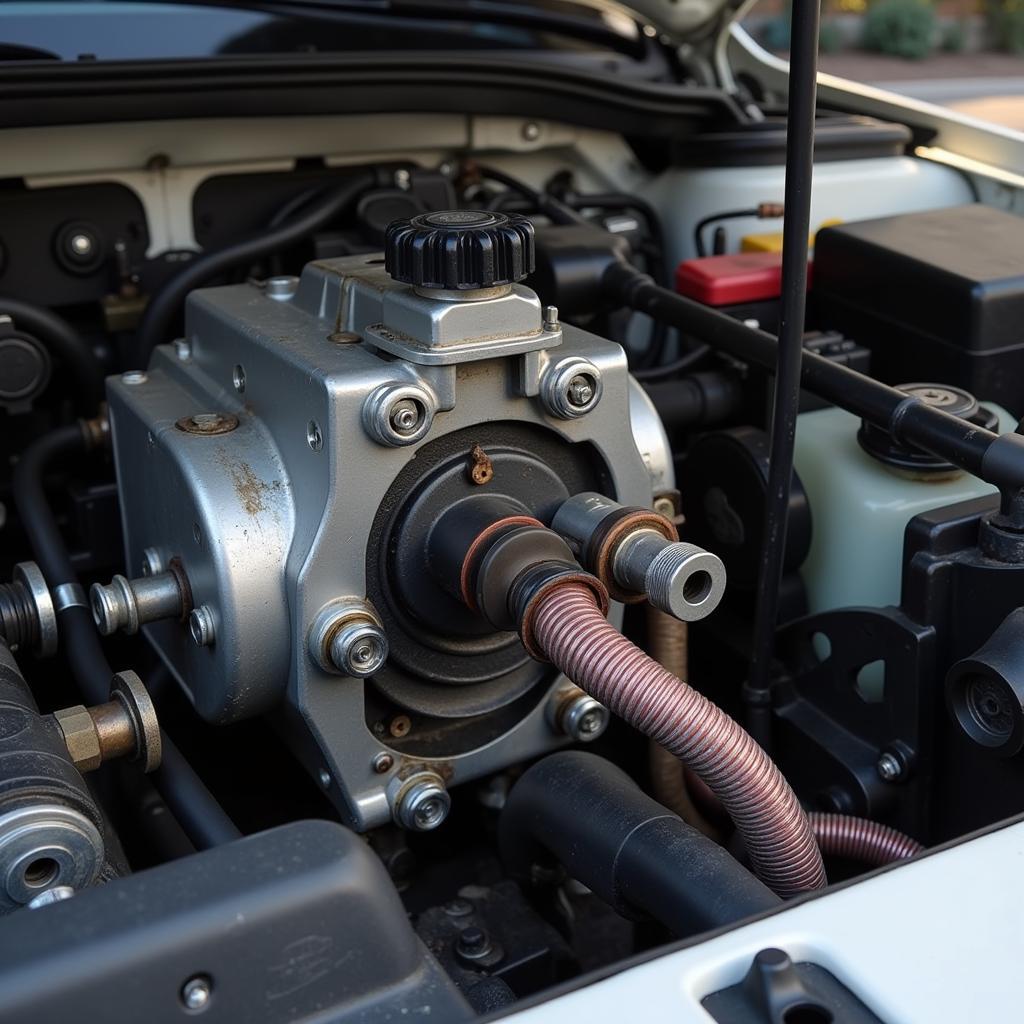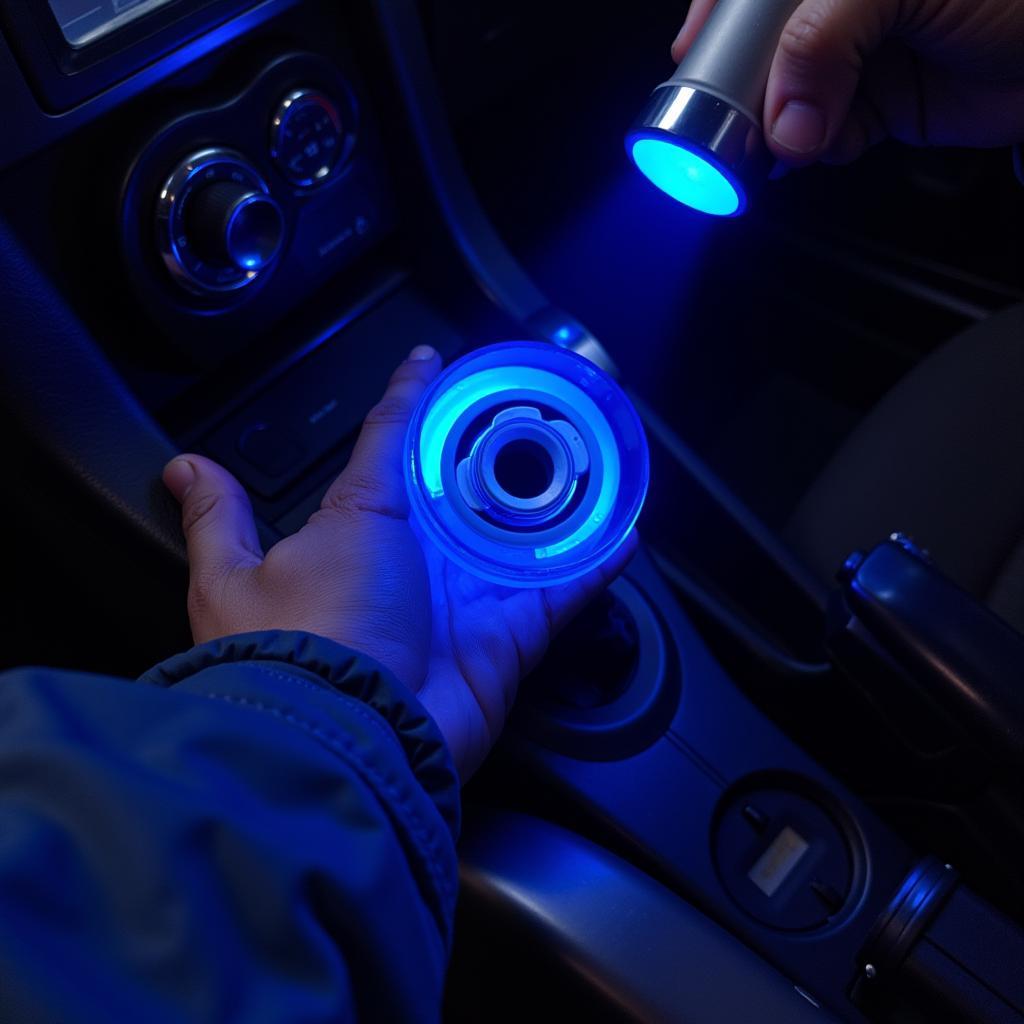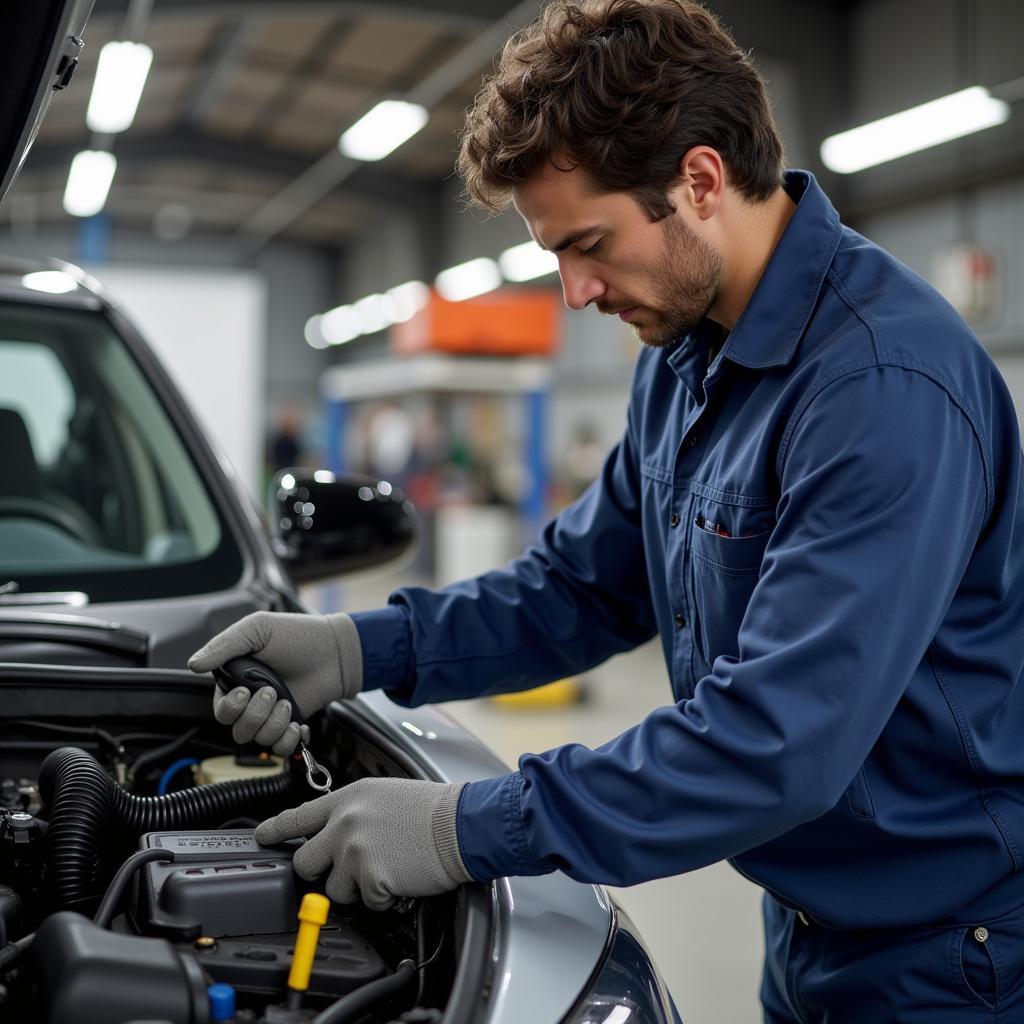That annoying hissing sound coming from your car’s AC system? It’s more than just an irritant; it could signal a problem that needs attention. This guide will delve into the common causes of an AC hissing noise in your car and offer practical solutions, whether you’re a car owner, a mechanic, or an automotive technician.
If your car AC isn’t blowing cold air, check out this helpful guide: how to fix ac not blowing cold air in car.
Understanding the Hiss: Common Causes of AC Hissing Noise
A hissing noise from your car’s AC system usually indicates a leak or restriction within the system. Pinpointing the exact source can be tricky, but understanding the common culprits is the first step towards a successful Ac Hissing Noise In Car Fix.
Refrigerant Leaks
The most frequent cause of hissing is a refrigerant leak. Refrigerant, the lifeblood of your AC system, circulates under high pressure. A leak, even a tiny one, can create a noticeable hissing sound as the refrigerant escapes. These leaks can occur in various components, such as hoses, connections, or even the evaporator or condenser.
Expansion Valve or Orifice Tube Issues
The expansion valve or orifice tube (depending on your car’s system) is responsible for regulating refrigerant flow. A malfunctioning expansion valve or a clogged orifice tube can restrict refrigerant flow, causing a pressure drop and the tell-tale hiss.
Internal Component Malfunctions
Sometimes, the hissing originates from within the AC compressor itself. Internal damage, such as worn bearings or a failing clutch, can produce a hissing or grinding noise.
 AC Compressor Hissing Noise
AC Compressor Hissing Noise
Diagnosing the Problem: How to Locate the Source of the Hiss
Accurately diagnosing the source of the hissing noise requires a systematic approach. Start by checking the most accessible components, such as hoses and connections, for signs of leaks or damage.
Visual Inspection
Look for oily residue or frost around the AC components. These are often indicators of a refrigerant leak. Listen carefully to pinpoint the location of the hiss. Is it coming from the engine compartment, the dashboard vents, or somewhere else?
Pressure Testing
If a visual inspection doesn’t reveal the source, a pressure test is the next step. This involves connecting gauges to the AC system to measure the refrigerant pressure. Low pressure often confirms a leak, while excessively high pressure might suggest a blockage.
Leak Detection
Specialized leak detectors can be used to identify even the smallest refrigerant leaks. These detectors use ultraviolet dye or electronic sensors to pinpoint the exact location of the escape.
 Refrigerant Leak Detection with UV Dye
Refrigerant Leak Detection with UV Dye
Need to fix a leaking AC compressor? Check out [how to fix leaking car ac compressor](https://autotippro.com/how to fix leaking car ac compressor/).
Fixing the Hiss: Repairing Your Car’s AC System
Once you’ve identified the source of the hiss, the repair process can begin. Some repairs are simple DIY projects, while others require the expertise of a qualified technician.
Refrigerant Recharge
If the hiss is caused by a minor refrigerant leak, recharging the system might temporarily resolve the issue. However, it’s crucial to address the underlying leak to prevent future problems. For information on what’s needed to fix your car AC, see what is needed to fix car ac.
Component Replacement
Leaking hoses, faulty expansion valves, or damaged compressors often require replacement. This involves evacuating the refrigerant, replacing the damaged component, and then recharging the system with fresh refrigerant.
“Regular AC maintenance is key to preventing costly repairs,” advises John Miller, a certified automotive technician with over 20 years of experience. “Simple checks like inspecting hoses and connections can save you a lot of trouble down the road.”
System Flush
If the system has been contaminated by debris or moisture, a system flush might be necessary. This involves cleaning the entire AC system to remove any contaminants that could affect its performance.
 Car AC Repair by a Technician
Car AC Repair by a Technician
Preventing Future Hissing: Maintaining Your Car’s AC
Regular maintenance is crucial for preventing AC hissing noises and keeping your system running smoothly.
Regular Inspections
Inspect your AC hoses and connections for signs of leaks or damage at least once a year. Addressing minor issues early on can prevent them from escalating into major problems. You can find information on how to fix your car’s air conditioner here: how to fix an air conditioner in a car.
Professional Service
Have your AC system professionally serviced every two years. This typically includes a refrigerant recharge, system inspection, and performance check.
“Preventive maintenance is always cheaper than reactive repairs,” states Maria Sanchez, an automotive engineer specializing in thermal systems. “Investing in regular AC service can extend the life of your system and save you money in the long run.”
Conclusion
An AC hissing noise in your car should never be ignored. By understanding the potential causes, diagnosing the problem accurately, and taking appropriate action, you can fix the issue and keep your car cool and comfortable. Contact AutoTipPro at +1 (641) 206-8880 or visit our office at 500 N St Mary’s St, San Antonio, TX 78205, United States for expert assistance with your car’s AC system.
If you’re experiencing AC slugging, here’s a resource for you: ac fix slugging in car.






Leave a Reply